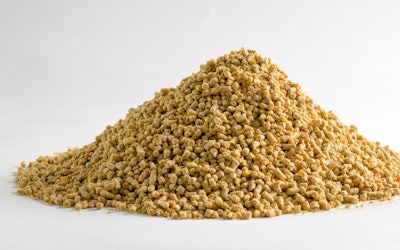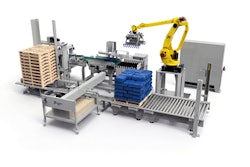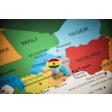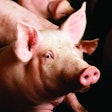
Allegations have been made against 5 poultry feed companies in Malaysia relating to infringements of competition law.
After investigations by a special task force, the Malaysia Competition Commission (MyCC) has found indications that five of the country’s feed companies may have infringed part of the Competition Act 2010.
According to this quasi-judicial government body, the businesses may have shared commercially sensitive information, which in turn may have distorted the market. Specifically, MyCC contends that the companies may have increased prices for poultry feeds based on corn and soybean meal between early 2020 and mid-2022.
MyCC reports that feed accounts for around 73% of the cost of poultry farming.
By entering into anticompetitive agreements or activities, the companies would have reduced the choice of feed supplier for poultry farmers.
Five companies were named by the MyCC. They are Dindings Poultry Development Centre Sdn. Bhd.; FFM Berhad; Gold Coin Feedmills (Malaysia) Sdn. Bhd.; Leong Hup Feedmill Malaysia Sdn. Bhd.; and PK Agro-Industrial Products (M) Sdn. Bhd.
The latest findings are provisional, MyCC stressed. It should not be assumed at this stage that any of these businesses has broken the law.
Over the coming 30 days, each company has the chance to submit written submissions in response to the preliminary findings.
If one or more of the enterprises is found to have infringed the 2010 Competition Act, the MyCC can impose a financial penalty of up to 10% of the company’s worldwide turnover during the infringement period, as well as any other directive the body considers appropriate.
Reaction to allegations
For its part, Dindings Poultry Development Centre has denied the allegations. It says they are without merit, and it will defend the allegations vigorously.
According to Free Malaysia Today, the company is a joint venture of Malayan Flour Mills Bhd.
For FFM Berhad, a finding that the company had infringed the Competition Act could lead to a fine of MYR46.36 million (US$10.4 million), reports The Edge Markets.
The company is 80% owned by the PPB Group Bhd, which is owned by Robert Kuok Hock Nien. FFM is working with advisers on its submission to MyCC.
Previously, Leong Hup International Bhd’s unit Leong Hup Feedmill Malaysia Sdn Bhd said MyCC had proposed a financial penalty of more than MYR157 million if it was found to have infringed the 2010 Act.
Leong Hup also rejects the initial finding that its business was involved in fixing poultry feed prices.
According to The Star, it is the high prices of imported corn and soybean meal that are responsible for rising consumer prices for poultry in Malaysia.
On the contrary, MyCC’s allegations have not directly contributed to the spiraling costs of chicken, said a poultry farm managing director, who wished to remain anonymous. He added that, of the five companies under investigation, four are vertically integrated poultry companies. The exception is Gold Coin Feedmills.
Poultry supply chain investigated
In April, New Straits Times reported that MyCC was investigating allegations of a cartel operating in the Malaysia poultry industry.
According to the report, some of the companies involved had expressed a willingness to cooperate with the investigation. Under a directive from the National Action Council on Cost of Living, this began in February.
Recently, rising prices for processed chicken led a consumer organization to call for an investigation into the whole poultry meat and egg supply chain.
More on Malaysia’s poultry industry
Already in April, prices of commodities such as corn and soybean meal were rising across the world. This applied also to Malaysia, according to an assessment of the grain and feed situation by the U.S. Department of Agriculture (USDA) Foreign Agricultural Service (FAS). In addition to strong global demand for feed raw materials, supply chains were heavily disrupted as a result of the Russian invasion of Ukraine.
Most of the corn in Malaysia goes into poultry feed, according to FAS, while domestic production is negligible.
While the country is generally self sufficient in poultry meat, it relies on imported corn. In recent years, most of Malaysia’s requirements have been supplied by Argentina and Brazil. FAS forecast imports totaling 3.8 million metric tons this year.
From June 1, the Malaysian government imposed a ban on poultry meat exports. According to FAS, this move aimed to ensure adequate supplies for the domestic market, as well as to stabilize market prices.
In Malaysia, retail prices for dressed chicken are under government control. With feed prices at a historical high, the nation’s poultry producers were unable to pass on to customers the global rises in prices they were experiencing.
For around four months this year, the Malaysian government provided subsidies to domestic producers. These amounted to MYR0.60 per kilo of live chicken, and MYR0.05 per egg.
Malaysia was among the countries mentioned in a recent article about the impacts of inflation on the world’s poultry producers. With their businesses under existential threat, many were faced with the choice of raising prices or losing customers.












